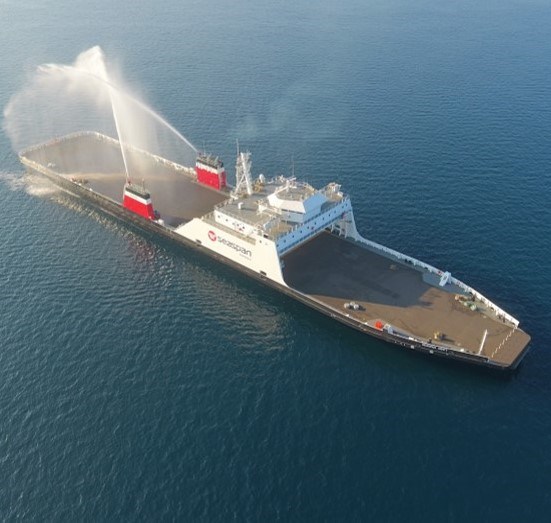Richmond-based Corvus Energy is partnering with Delta’s Seaspan Ferries Corporation to test-run a new battery system for large ships, such as cargo and cruise vessels.
The new large-scale battery system, named Blue Whale energy storage system (ESS), has been designed and will be installed on one of Seaspan Ferries’ cargo vessels for a field trial this summer.
According to Corvus, the battery system is described as “unique stacking blocks of high-density battery cells” that is designed specifically for large ships with high zero-emission energy demands, such as cruise and cargo ships.
The Blue Whale system will be installed on the Seaspan Reliant – a roll-on, roll-off drop-trailer cargo ferry – which services between B.C.’s Lower Mainland and Vancouver Island.
Richard Wing, chief research and development officer at Corvus Energy, says the field trial will allow their teams to confirm the requirements needed for a production line and post-production processes.
“During this time of restricted travel due to COVID-19, being able to conduct the field trial in the same location as our Canadian development and manufacturing facilities is a huge benefit and allows us to stay on schedule for commercial product release,” says Wing.
“The new architecture (of the battery system) is modular and flexible to suit not only Blue Whale, but an ever-expanding range of maritime energy storage applications in the future.”
Corvus says that the Blue Whale ESS will be replacing the first generation Corvus AT6500 ESS in the existing battery room, which will increase the vessel’s storage capacity by three and a half times.
Gord Miller, vice-president of Seaspan Ferries, says they are committed to caring for the environment and are excited to be part of this project to transform shipping into a “greener and more sustainable industry.”
“This trial will also provide valuable experience locally, as personnel from VARD Marine, BC Hydro and the University of British Columbia will provide integration design, shore charging from the grid infrastructure, and emissions reduction studies respectively – all important areas of expertise to develop as British Columbia develops its coastal emissions reduction plans.”
The Blue Whale field trial and maritime authority certifications are expected to be completed by spring 2022, which is when commercial deliveries are expected to begin.



